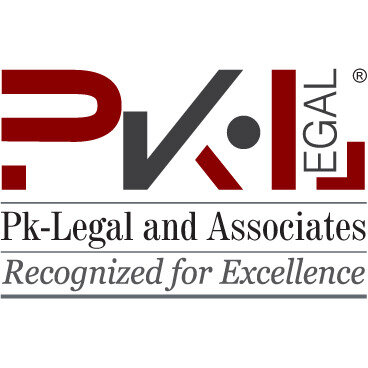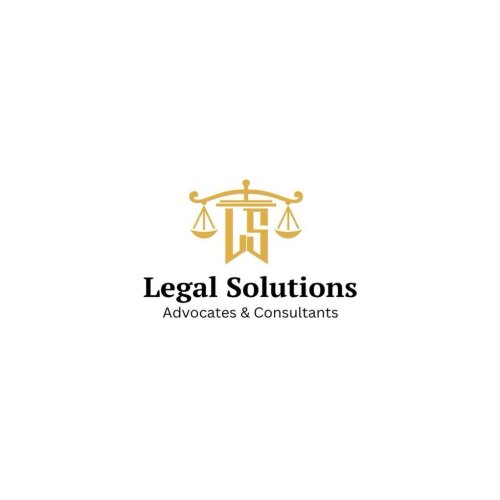Best Banking & Finance Lawyers in Rawalpindi
Share your needs with us, get contacted by law firms.
Free. Takes 2 min.
List of the best lawyers in Rawalpindi, Pakistan
About Banking & Finance Law in Rawalpindi, Pakistan
Banking and Finance law in Rawalpindi, Pakistan is primarily governed by both federal and provincial legislation. The key regulatory authority is the State Bank of Pakistan (SBP), which is the central bank of the country responsible for regulating the monetary and credit system of Pakistan. Banking laws are designed to ensure the soundness and integrity of the financial system, and they encompass a wide range of activities from the operation of banks to the conduct of financial transactions. Finance law includes the regulation of investment, insurance, and securities, as well as the laws that govern financial instruments and the financial markets.
Why You May Need a Lawyer
Individuals and businesses may require legal help in Banking & Finance for various reasons, including:
- Setting up a new bank account or dealing with banking fraud.
- Navigating loan agreements, including mortgages, personal loans, or business loans.
- Understanding and negotiating terms of finance for projects, trade agreements, or other commercial transactions.
- Resolving disputes over financial transactions or services.
- Ensuring compliance with regulations related to capital markets, investments, and securities.
- Handling bankruptcy proceedings or restructuring debt.
Local Laws Overview
Key aspects of local laws in Rawalpindi that are particularly relevant to Banking & Finance include:
- The Banks and Financial Institutions Ordinance, which provides the legal framework for the establishment and operation of banks and financial institutions.
- The State Bank of Pakistan Act, which outlines the powers and functions of the country's central bank.
- The Companies Act, which includes provisions for companies engaging in financial activities.
- The Securities Act and the Securities and Exchange Commission of Pakistan Act, which regulate securities and protect investors' interests.
- The Foreign Exchange Regulation Act, governing foreign currency transactions and foreign investments.
Frequently Asked Questions
What should I do if I suspect banking fraud on my account?
Immediately notify your bank and file a complaint. It is also recommended to seek legal advice to understand your rights and to initiate any possible legal actions.
Do I need a lawyer to take out a loan or mortgage?
While it is not mandatory, hiring a lawyer can help you better understand the terms and protect your interests, especially for significant loans or complex agreements.
How are interest rates determined for loans or savings accounts?
Interest rates are often determined by the individual bank within the guidelines set by the State Bank of Pakistan. They can vary based on the type of account or loan and market conditions.
What is the role of the State Bank of Pakistan in Banking & Finance?
The SBP regulates the monetary and credit system, ensures financial stability, oversees banking operations, and maintains currency regulation.
What legal documents do I need for a financial transaction or agreement?
The required documents can vary, but generally include identity verification, agreement forms, disclosure statements, and possibly collateral documentation for loans.
Is my money protected if a bank fails?
Yes, the Pakistan Deposit Insurance Corporation ensures a certain amount per depositor per bank in case of bank failure.
How can I resolve a dispute with a financial institution?
First, approach the institution's customer service. If unresolved, you can seek assistance from the Banking Mohtasib or engage legal counsel to pursue further action.
Can foreign nationals open bank accounts in Pakistan?
Yes, but they must comply with KYC and anti-money laundering requirements, and might face certain restrictions based on their visa status.
Are there specific laws for Islamic banking in Pakistan?
Yes, Islamic banking falls under the Islamic Financial Services Board (IFSB) standards and the Shariah-compliant regulatory framework provided by the State Bank of Pakistan.
What steps should I take to ensure legal compliance when investing?
Engage a financial advisor or a lawyer, research the potential investment thoroughly, and ensure all transactions comply with relevant securities laws.
Additional Resources
For individuals seeking legal advice in Banking & Finance, the following resources may be helpful:
- The State Bank of Pakistan - for regulatory guidelines and banking policies.
- The Securities and Exchange Commission of Pakistan - for investment and corporate regulations.
- The Pakistan Banks' Association - for information on banking practices and standards.
- The Banking Mohtasib - for banking dispute resolutions.
- The Pakistan Deposit Insurance Corporation - for information on deposit insurance schemes.
Next Steps
If you need legal assistance in Banking & Finance:
- Document all relevant information about your case, including communication records and financial transactions.
- Consult a lawyer specializing in Banking & Finance laws for personalized legal advice.
- Consider contacting a regulator or an ombudsman if your issue pertains to regulatory compliance or disputes with financial institutions.
- Stay informed about your rights and obligations under the laws of Pakistan to better protect your financial interests.
Lawzana helps you find the best lawyers and law firms in Rawalpindi through a curated and pre-screened list of qualified legal professionals. Our platform offers rankings and detailed profiles of attorneys and law firms, allowing you to compare based on practice areas, including Banking & Finance, experience, and client feedback.
Each profile includes a description of the firm's areas of practice, client reviews, team members and partners, year of establishment, spoken languages, office locations, contact information, social media presence, and any published articles or resources. Most firms on our platform speak English and are experienced in both local and international legal matters.
Get a quote from top-rated law firms in Rawalpindi, Pakistan — quickly, securely, and without unnecessary hassle.
Disclaimer:
The information provided on this page is for general informational purposes only and does not constitute legal advice. While we strive to ensure the accuracy and relevance of the content, legal information may change over time, and interpretations of the law can vary. You should always consult with a qualified legal professional for advice specific to your situation.
We disclaim all liability for actions taken or not taken based on the content of this page. If you believe any information is incorrect or outdated, please contact us, and we will review and update it where appropriate.
Browse banking & finance law firms by service in Rawalpindi, Pakistan
Rawalpindi, Pakistan Attorneys in related practice areas.















